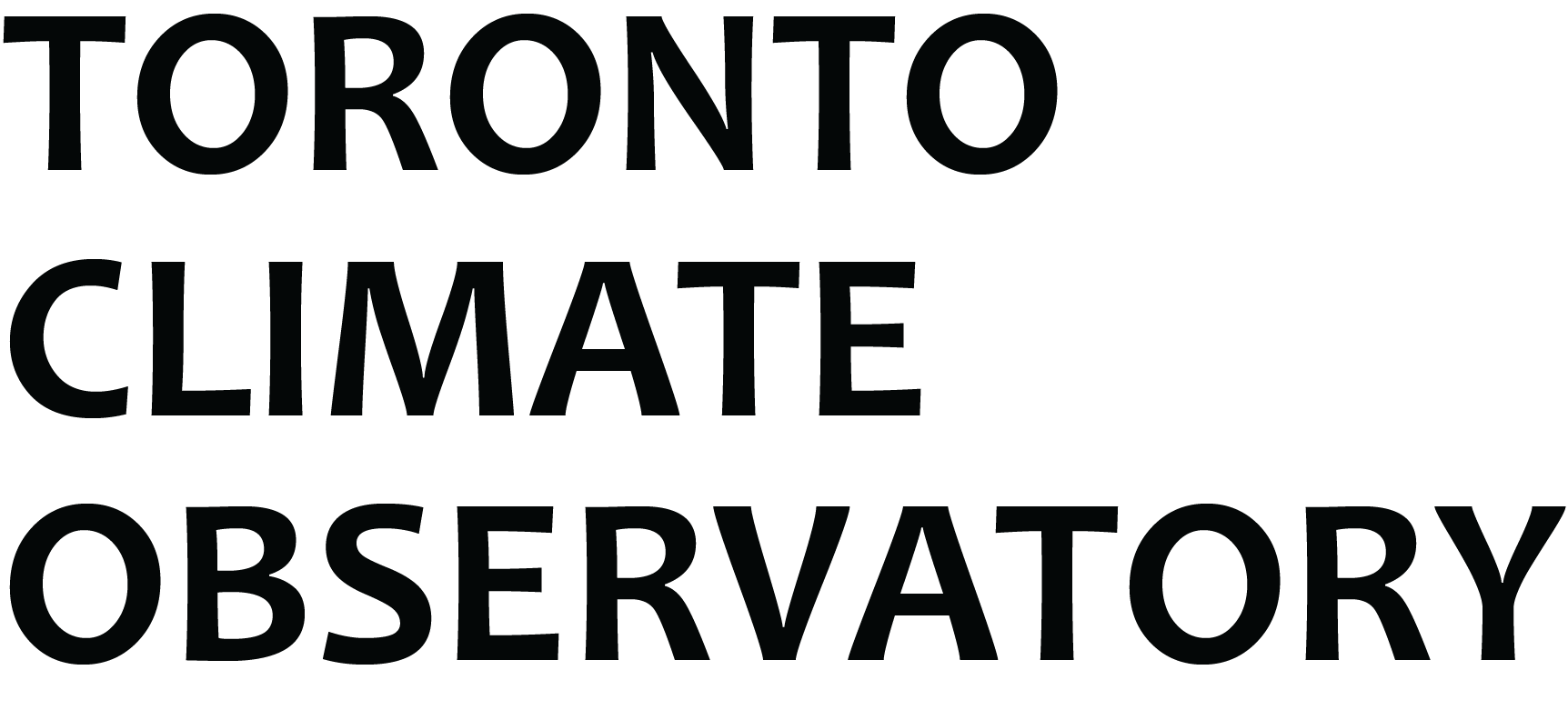Welcome to the Toronto Climate Observatory (TCO) is an emerging interdisciplinary initiative hosted at the University of Toronto. The TCO’s mission is to reimagine how communities around the Greater Toronto Area (GTA) understand and adapt to the impacts of climate change in accountable, contextually situated, equitable, and action-driven ways. The initiative aims to develop the next generation of climate change data practices through partnerships with UofT and non-UofT scholars, the government and civil society and drawing on methods from climate modeling, human centered design, Science and Technology Studies (STS), oral history, citizen science, and art/science collaboration.
Learn more about the TCO
Values
- Equity and Justice: The TCO strives for more equitable responses and decision-making to the climate crisis to ensure basic human needs and rights for all and more just outcomes for those who are most impacted by climate change.
- Local and Contextualized: The TCO is committed to action and research that are grounded in place and informed by local and Indigenous knowledges, place-based problem solving and adaptation, and cultural relevance.
- Accountability: We strive to be accountable to each other and all those who work with us. We work towards developing purposeful and considerate research practices, and critically evaluate the benefits as well as the potential harms of our activities.
- Action-Oriented: Our goal is to help affected communities monitor and respond to the impacts of climate change, and we design our projects and evaluate our progress according to these metrics.
Approach
Meeting Public Needs for Climate Impact Information
Working with activist groups, Indigenous organizations, municipal government, emergency managers, and transit planners among other actors to identify opportunities for creating climate data that is crucial to the local needs of communities, governance, environmental justice, and future scientific research. Theme 1 activities will include a desk review/stocktake of the current situation, and an overview paper of the gaps and opportunities for public infrastructures and practices for accessing, using, and assessing climate data locally.
Ensuring Climate Data Justice
Investigating the differential local impacts of climate change, the relationship between land and data, and the social relations that exist around climate data in the GTA. This theme will further investigate and expand climate data practices through engagement with community groups working on climate justice at the local level. Activities will include the development of research networks with civic actors in the space and a set of research protocols and guidelines around collection, management, and use of climate data that center concerns of climate data justice.
Fostering Public Engagement and Co-Production of Climate Knowledge
Setting up infrastructures to involve the public through citizen science, oral histories, and the arts and co-produce knowledge of climate change impacts as experienced from their situated positions in the GTA. This theme will also reimagine middle-out practices to augment macro objectives (dictated by data models / set by experts and government bodies) with citizen interests and insights for planning and decision making. Theme 3 activities will include a public forum event and materials on civic and epistemic “hooks” that sensitize relevant climate data to the diverse human experiences of climate change.
Identifying Physical and Social Science Approaches for Unstable Climates
Identifying challenges in current practices of physical and social science given the growing recognition that existing models rely on historical and global records that assume a relatively stable physical climate and political-economic climate. Activities under this theme aim at identifying research priorities that improve our ability to conceptualize and cope with uncertainty, as well as investigating alternative modes of predictive practice such as scenario-based planning and back-casting.


One response
Hi, this is a comment.
To get started with moderating, editing, and deleting comments, please visit the Comments screen in the dashboard.
Commenter avatars come from Gravatar.